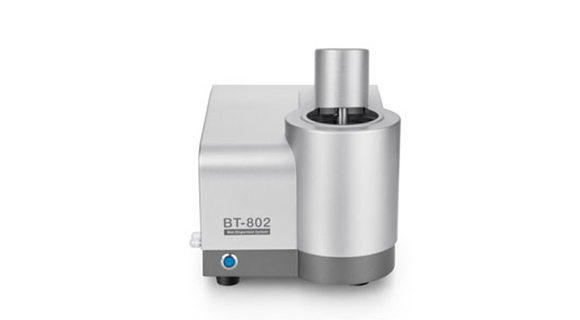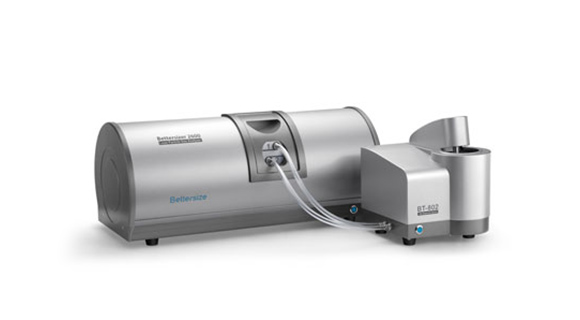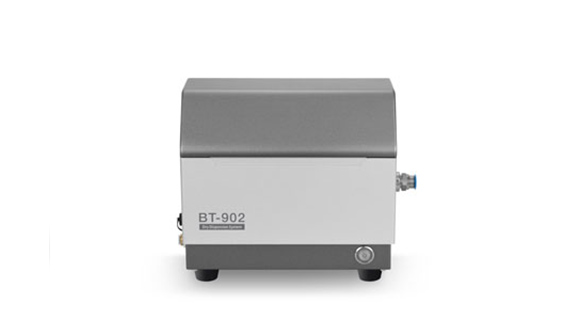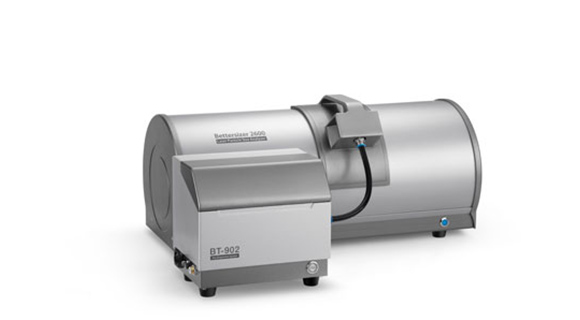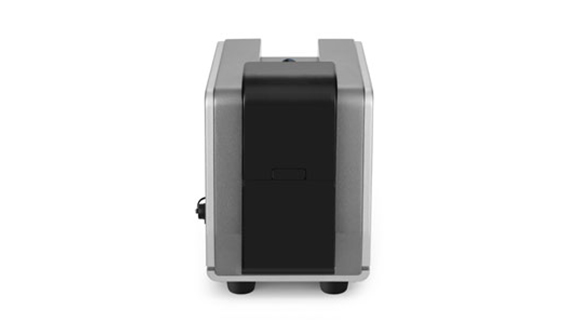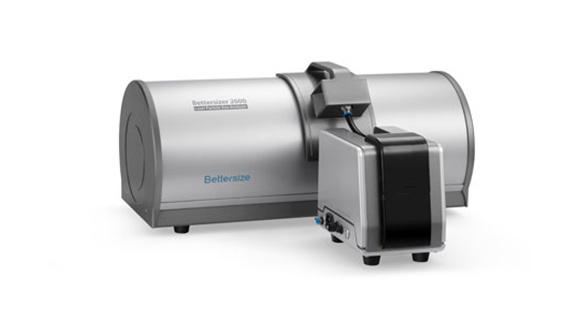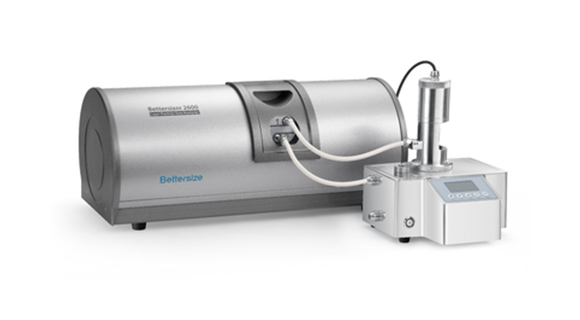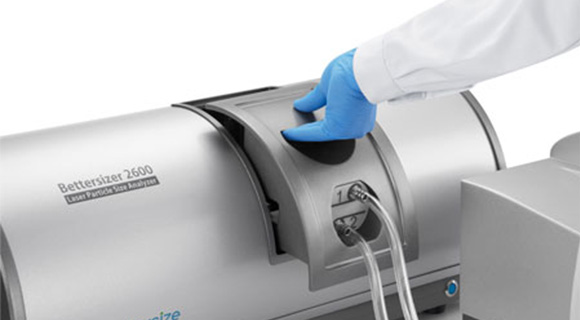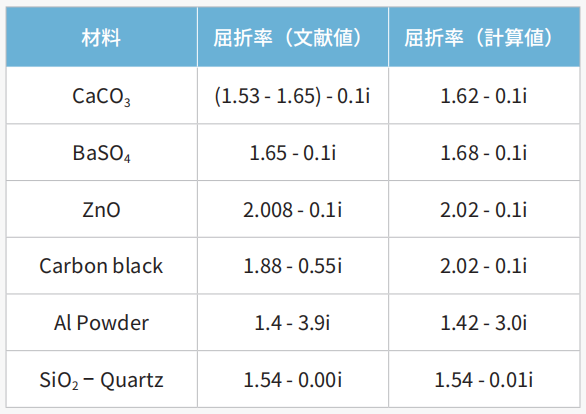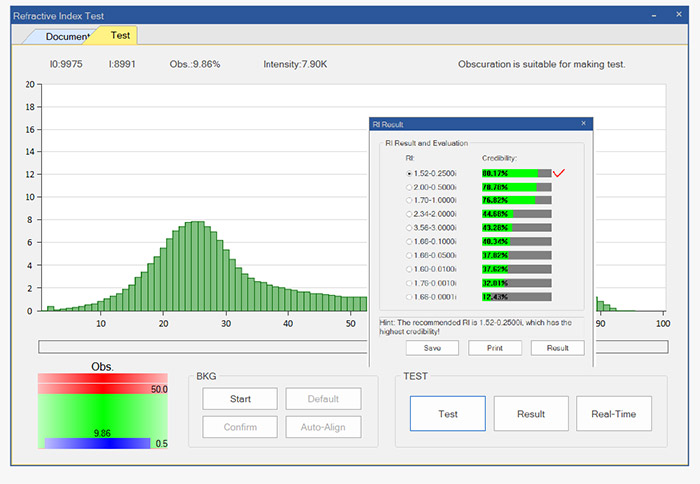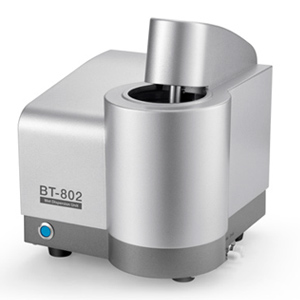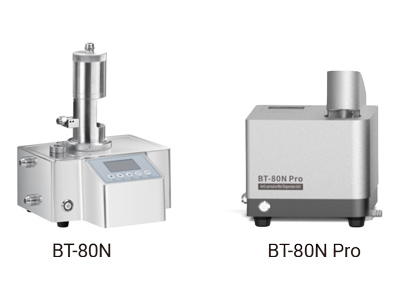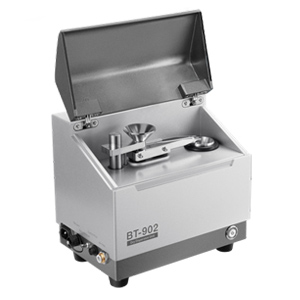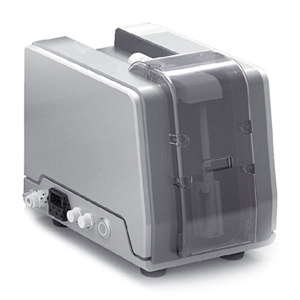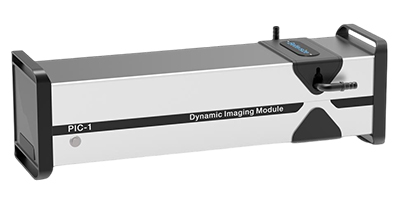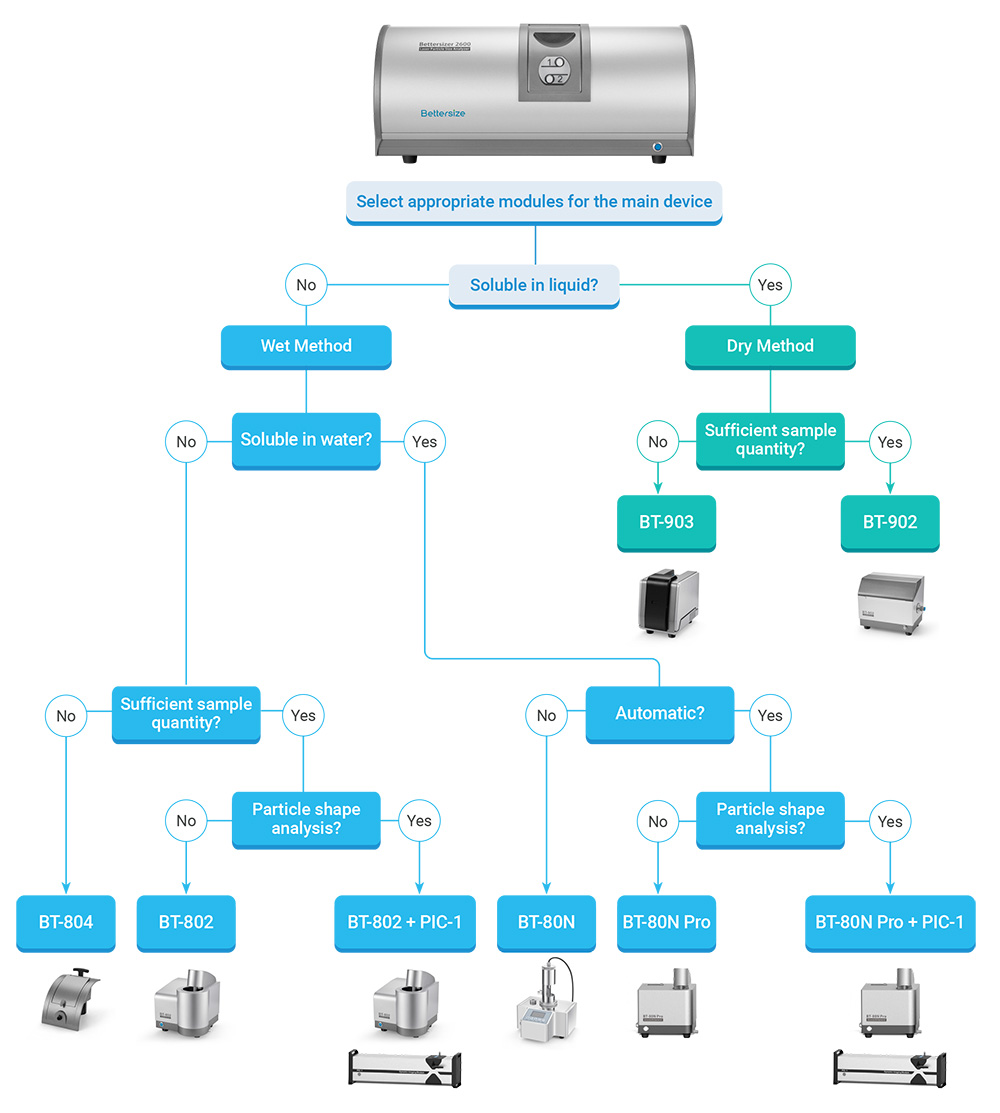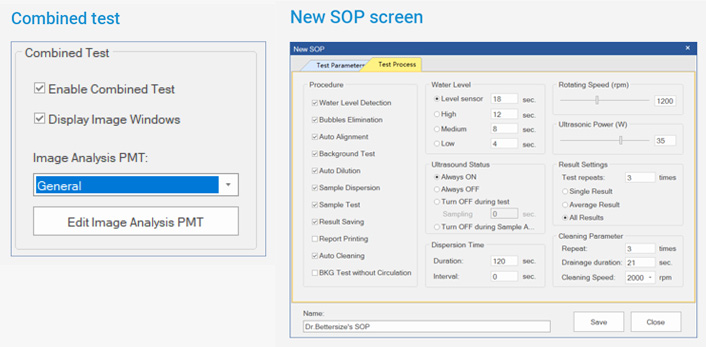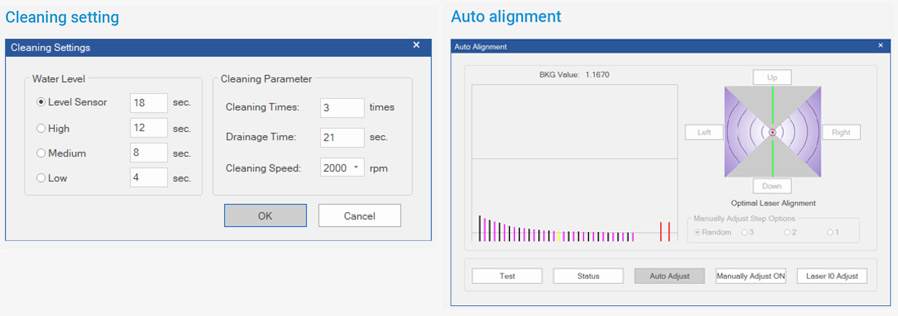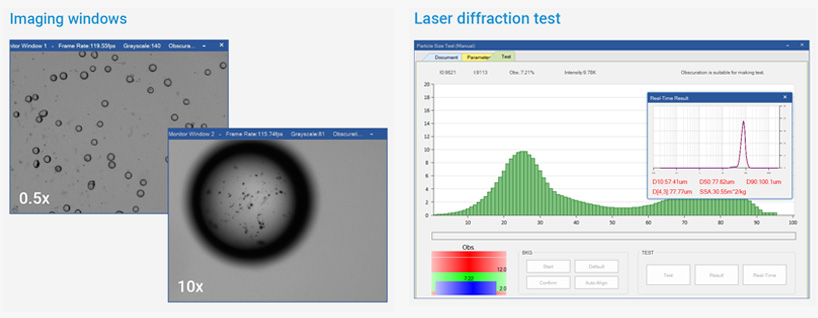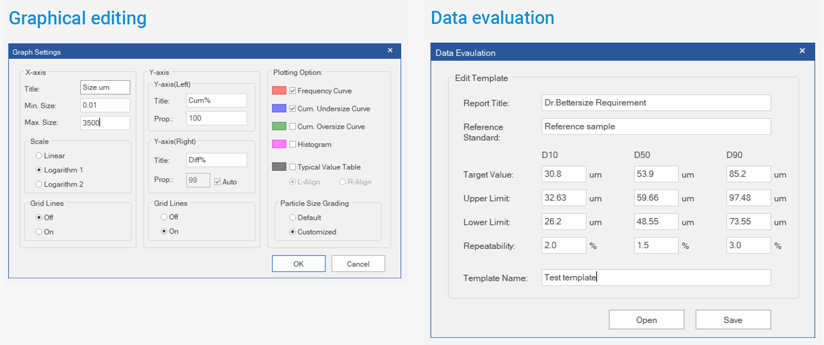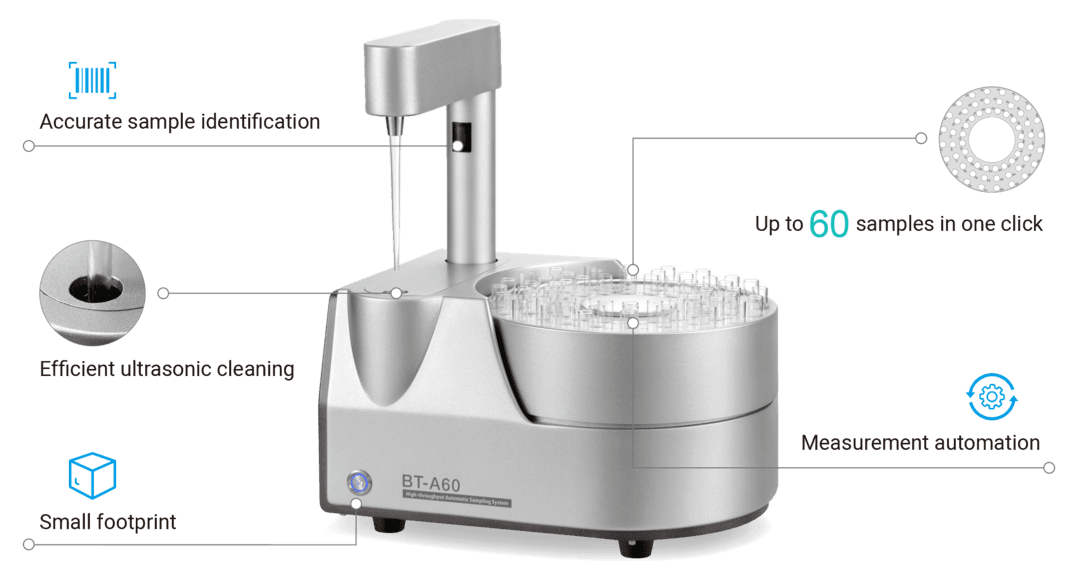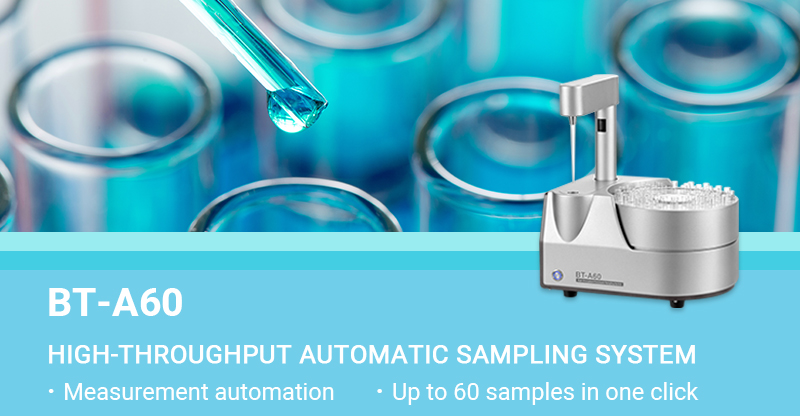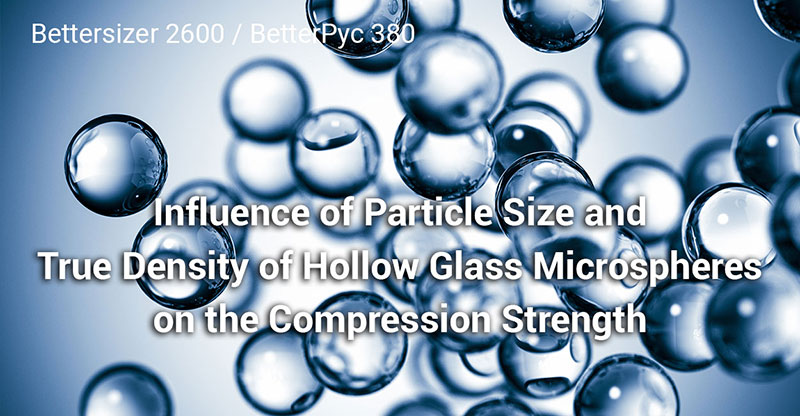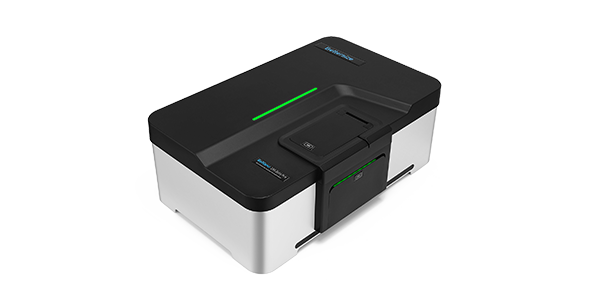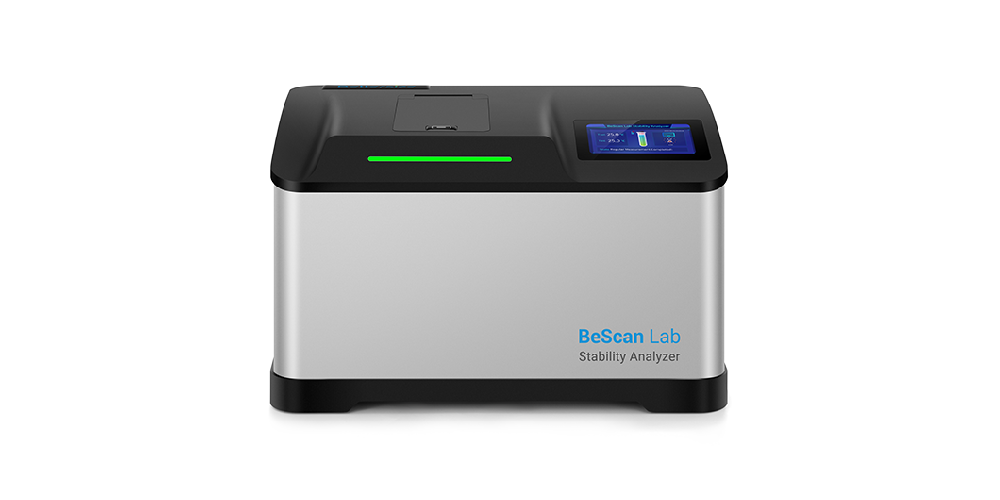Bettersizer 2600は、レーザー回折・散乱法を採用し、0.02〜2,600 μm の広範な粒子径測定を実現する高精度粒子解析装置です。Bettersizer 2600のモジュール設計は、さまざまな粉粒体の特性に対応できる多彩なオプションを備えており、お客様の多様なニーズに柔軟にお応えします。特にレーザー回折・散乱法と湿式の動的画像解析法の組み合わせは、測定可能な粒子径範囲を最大3,500 μmまで拡張でき、粒子径だけでなく粒子形状の詳細な分析も実現します。使いやすさを追求した豊富なオプションと直感的なソフトウェアにより、操作性が大幅に向上し、製造過程における品質管理から研究開発に至るまで、幅広い用途にてお使いいただけます。
機能と利点
- ● 幅広い測定範囲:0.02~2,600μm(湿式分散)、0.1~2,600μm(乾式分散)、2~3,500μm(動的画像解析)
- ● 2種の解析原理: レーザー回折・散乱法と動的画像解析法
- ● 特許取得技術:フーリエと逆フーリエの組み合わせ
- ● 0.016°~165°までほぼ全角度にわたり合計92個の検出器を配置
- ● レーザーのオートアライメント機能を搭載
- ● PIC-1モジュールにより24項目の粒子形状パラメータを提供可能
- ● 乾式・湿式分散ユニットをシームレスに切り替え可能
- ● 直感的なソフトウェアにより操作性が向上
- ● ISO 13320、21 CFR Part 11、USP <429>、ISO 13322-2に準拠
ビデオ
How to Install and Operate Bettersizer 2600 
Bettersizer 2600 | Laser Diffraction Particle Size Analyzer (Wet & Dry) 
Snippet - How to Measure Particle Size of Coffee Powder 
Ask an Expert! Introducing Bettersizer 2600 
A Brief Introduction to Laser Diffraction | Fundamentals of Bettersizer 2600 
Bettersizer 2600 Demonstration with Corundum (Al2O3) sample 
How to Measure Particle Size of Cosmetics 
How to Measure Particle Size of Coffee Powder 
Bettersizer 2600 Overview | Laser Diffraction Particle Size Analyzer (Dry & Wet Dispersions) 
概要
装置特徴
分散ユニット
モジュール選択
ソフトウェア
装置仕様
オートサンプラー
Bettersizer 2600は、レーザー回折・散乱法を採用し、0.02〜2,600 µmの広範囲な粒子径測定を実現する高精度粒子解析装置です。本装置は92個の高感度検出器を搭載しており、散乱スペクトルから得られる散乱光信号を電気信号に変換し、Mie散乱理論に基づいて解析されることで、高精度と信頼性を持つ粒子径分布結果が得られます。
Bettersizer 2600のモジュール設計は、さまざまな粉粒体の特性に対応できる多彩なオプションを備えており、お客様の多様なニーズに柔軟にお応えします。特に、レーザー回折・散乱法と動的画像解析を組み合わせることで、測定可能な粒子径範囲を最大3,500 µmまで拡張し、粒子径だけでなく粒子形状の詳細な分析も実現可能です。様々な分散ユニットを使用することで、異なる分散条件や粒子特性に応じた最適な測定条件を提供します。使いやすさを追求した豊富なオプションと直感的なソフトウェアにより、操作性が大幅に向上し、製造過程における品質管理から研究開発に至るまで、幅広い用途にてお使いいただけます。
レーザー回折・散乱法による粒子径測定
1. 独自の特許技術に支えられている Bettersizer 2600
1.1 フーリエ・逆フーリエの組み合わせ
Bettersizer 2600 は、フーリエと逆フーリエの光学系を活用して卓越した性能を実現しています。内部構造には、前方、側方、後方検出器を含む合計 92 個の検出器が配置されています。0.016°~165° までほぼ全角度にわたり検出することにより超ワイドレンジ 0.02~2,600μm の高分解能測定を実現しています。
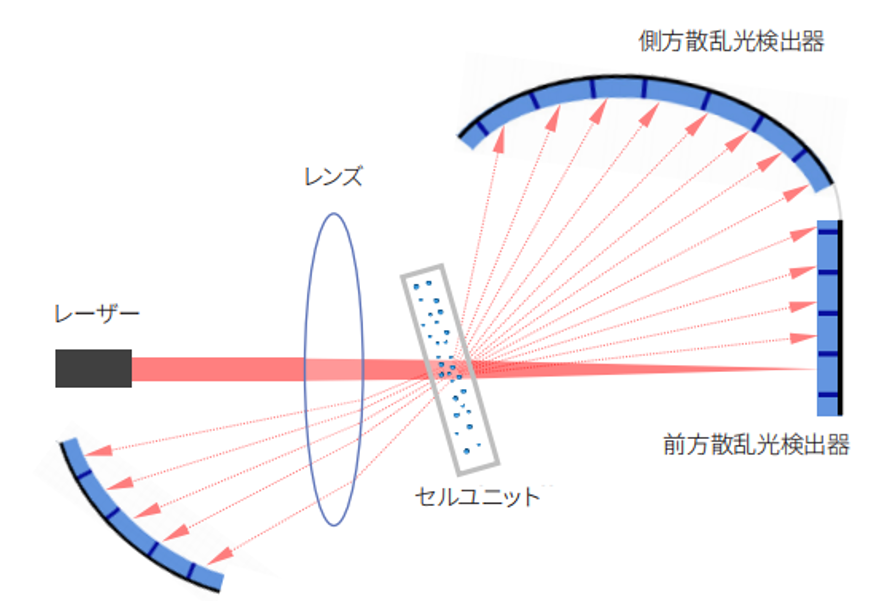
特許取得済みのフーリエ・逆フーリエ光学システム
内部全反射は、光が屈折率の大きい媒質(ガラス)から小さい媒質(空気)に入射するとき、入射角が臨界角より大きい場合に生じます。Bettersizer 2600 の革新的な傾斜式セルは、全反射を 効果的に抑えることで、より多くの散乱光信号を検出 器に届けます。これにより測定の信頼性が向上し、よ り包括的なサンプル情報の取得が可能になります。
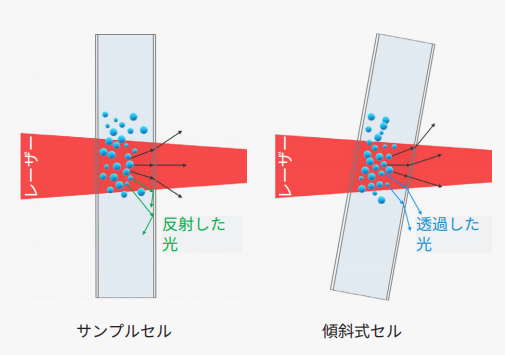
1.2 屈折率計算機能
ミー理論に基づくレーザー回折・散乱法を原理とする粒子径分布測定装置において、以下のような要因によって粒子径測定が困難になる場合があります。
- サンプルの屈折率が全く不明な場合
- サンプルが不均一な化学組成を持つ場合
- サンプルがバルク物質と比較して大幅に大きく異なる粒子光学特性を持つ場合
- サンプルの光の分散が大きい(アッベ数が小さい)場合
これらの課題に対処するためには、屈折率を決定することが最も効果的な解決法の1つです。Bettersizer 2600 は以下の機能を提供します。
- 屈折率が不明なサンプルの屈折率を決定
- 特性が不明なサンプルの測定
- 特定の波長における材料の既知のデータを検証
- リアルタイムで粒子径分布測定のための重要なパラ メーターを提供
2. 粒子径測定における優れたパフォーマンス
2.1 幅広い測定範囲
優れた構造により、前方、側方、後方検出器を含む合計92個の検出器を備え、0.016°~165°まで検出することにより超ワイドレンジ 0.02~2,600μmの高分解能測定を実現しています。
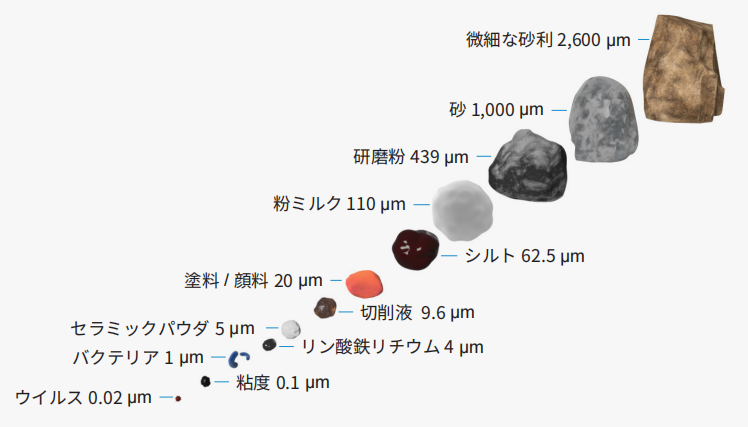
2.2 高分解能
Bettersizer 2600 は、分解能の高い解析能力により、1 回の測定で粒子径の様々なサンプルの粒子径を区別できます。
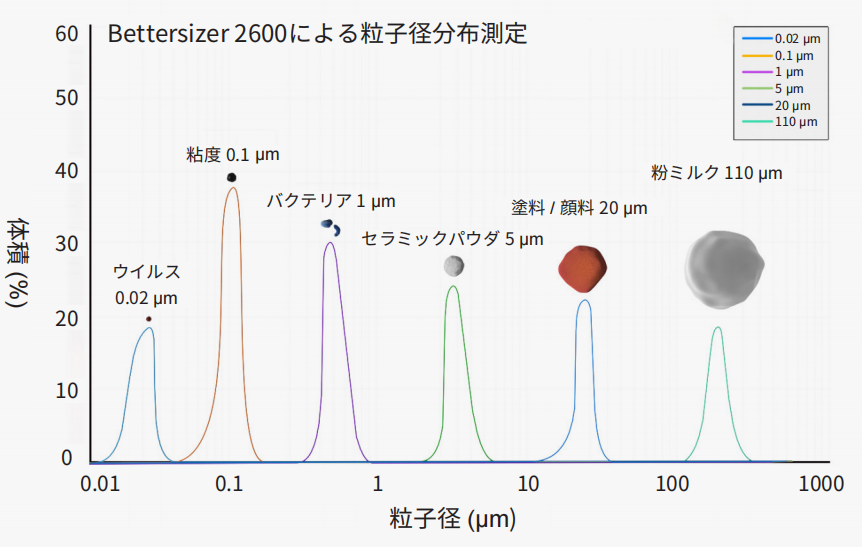
2.3 高感度
Bettersizer 2600 は、粒子径分布測定において高い精度を持つ装置で す。一方の試料を他方の試料に徐々に添加すると、分布の変化をリアルタイムで表示できます。装置の感度が高いため、微細な変化も検出します。
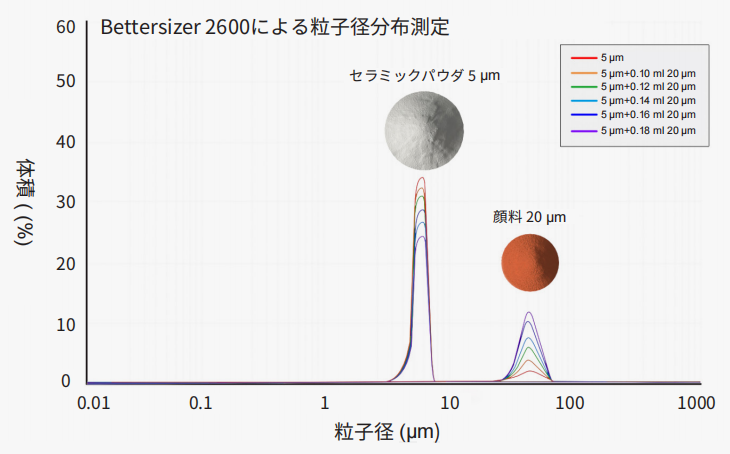
動的画像解析法
1. PIC-1: デュアルカメラ内蔵粒子画像解析モジュール
PlC-1 は、2 カメラを搭載した動的画像解析モジュールで、標準湿式 BT-802 のような分散ユニットから粒子を分散させ、セル内で移動する粒子をリアルタイムで解析します。このシステムは、内蔵された高速カメラで粒子の画像を取得し、それをデジタルデータに変換します。粒子径分布に加えて粒子の形状特性も把握でき、材料科学、製薬、化学工業など多岐にわたる分野で、粒子特性の詳細な理解が可能になります。
デュアルカメラ式粒子画像解析システム
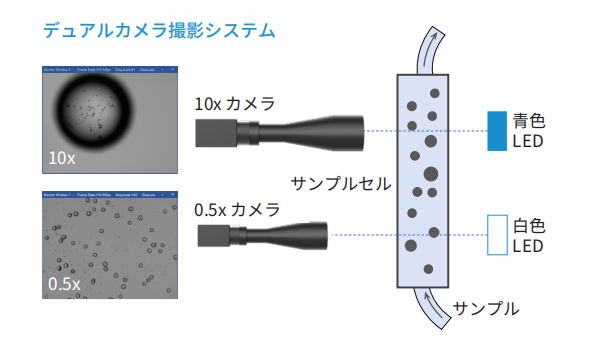
2. 画像処理モジュールで見識を広げる
2.1 測定範囲の拡張
レーザー回折・散乱法と動的画像解析法のシームレスな組み合わせにより、Bettersizer 2600 の測定範囲が 3,500 μm に拡張されます。これにより、河川の沈殿物のように粒子径分布が広いサンプルも測定できるようになり、より多様な分析が可能になります。
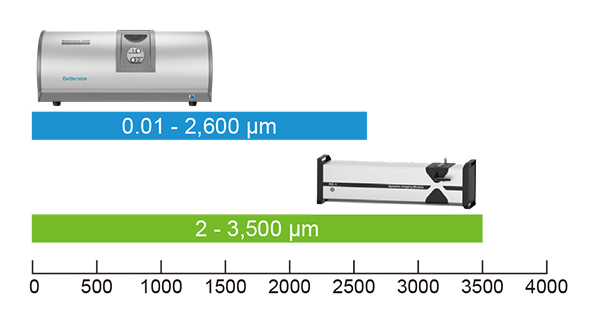
2.2 24 項目の粒子形状情報
PlC-1 が提供する 24 項目の粒子パラメータ分析により、粒子径や粒子形状に関する詳細なデータが得られます。リアルタイムでの画像取得により、個々の粒子の特性を細部まで把握することができ、より深い理解と分析が可能になります。
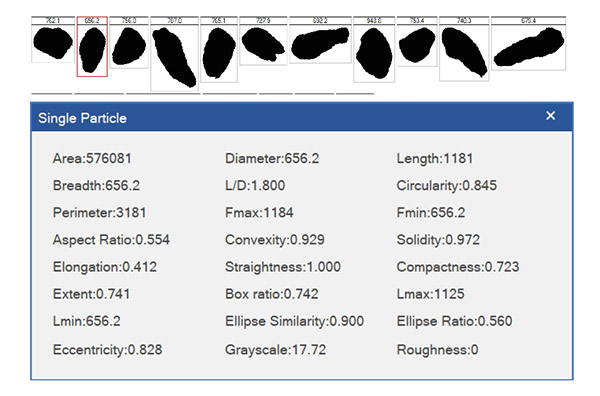
2.3 粗大粒子を検出可能
レーザー回折・散乱法と動的画像解析を組み合わせることで、広い粒子径分布を持つサンプルでも、粗大粒子や、凝集体、気泡などの存在を高感度に検出することができます。
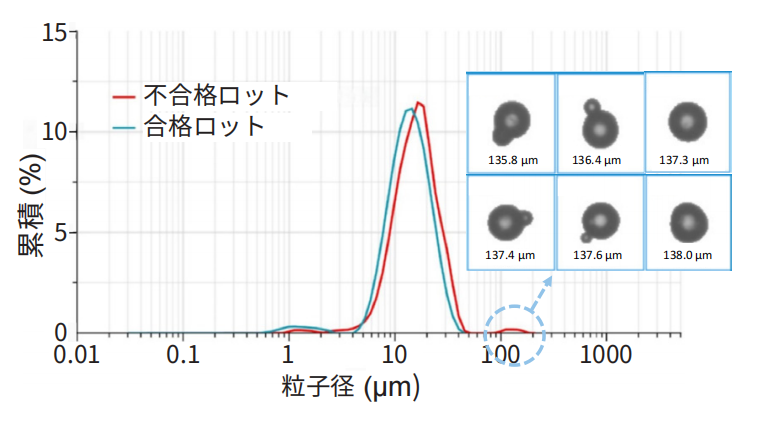
さまざまな粉粒体の特性に対応できる多彩なオプション
1. 湿式(Wet)分散ユニット
湿式分散とは、水や有機溶媒などを分散媒として使用し、測定粒子を均一に分散させます。撹拌器で粒子が沈降するのを防ぎながら、界面活性剤の使用や超音波分散器で気泡や凝集体を除去し、粒子をさらに細かく分散させるようにします。
- BT-802は超音波分散器とサンプル循環のための遠心ポンプを備えた全自動標準分散モジュールです。全容積は600mlで、分散媒として蒸留水やアルコール類を使用することができます。
- BT-80Nは、BT-802より容積が小さい(約250ml)分散モジュールで、分散媒としてヘプタン、トルエン、オイルなどの非極性溶媒を使用することが可能です。

2. 乾式(Dry)分散ユニット
乾式サンプル分散は、溶媒を使用せずに乾燥粉末または粉粒体を測定する場合に使用します。サンプルは振動フィードによって測定前に分散され、チャンネル内に落下します。そして圧縮空気(ベンチュリノズル)によって水平測定セルに運ばれます。その過程で粒子は容器の壁への衝突、空気の流れのせん断力、粒子同士の衝突によって分散されます。
- BT-902は粒子の性質によって粒子の移送速度、分散圧力(~5bar)が調整できる乾式全自動標準分散モジュールです。凝集性の粉体、流動性の良い粉体両方に適した分散モジュールです。
- BT-903はBT-902より少ないサンプル量(20mg~1g)を分散させ、粒子径を測定るのに使用します。研究開発、医薬品等希少で、貴重なサンプルの測定に適しています。

Citations
- Bettersizer 2600
Functional redundancy as an indicator for evaluating functional diversity of macrobenthos under the mussel raft farm near Gouqi Island
DOI: 10.1016/j.aquaculture.2023.740024 Read ArticleZhejiang Ocean University | 2024Biological traits analysis (BTA) helps to evaluate the effects of different environmental variables on the traits-based functional composition of macrobenthos. However, research on functional traits of macrobenthos under mussel farming is limited. We investigated the spatial and temporal response of the benthic system in terms of taxonomic and functional diversity to environmental variables of farming and natural stressors resulting from suspended mussel farming near Gouqi Island of eastern China Sea. The functional traits of macrobenthic assemblages under mussel farming were characterized by “medium adult body size”, “vermiform body form”, “high flexibility”, “infauna”, “semi-motile”, “gonochoristic”, “surface deposit-feeders”, “carnivores”, “semi-motile burrowers”, and “tube-dwellers”. Functional redundancy was stable in response to mussel farming stresses among seasons, whereas species diversity showed efficient to evaluate natural variables. Functional diversity was significantly affected by farming stressors rather than natural variables, Further analysis using multivariate methods together with continuous monitoring were highlighted to evaluate the impacts of mussel farming. Our results reinforce the importance of macrobenthic species and functional traits analysis to evaluate human stresses driven impacts in offshore ecosystems. By analysing the environmental variables with different sources, independently, we concluded the main effects of human pressures on macrobenthic community. Such distinction could be particularly effective to isolate variable environmental descriptors and evaluate their effects on functional diversity, making the current approach promising for the evaluation of ecological effects of anthropogenic stressors in aquaculture areas. - Bettersizer 2600
Degradation characteristics and utilization strategies of a covalent bonded resin-based solid amine during capturing CO2 from flue gas
DOI: 10.1016/j.seppur.2023.125621 Read ArticleChina University of Petroleum | 2024In this study, various types of degradation as well as attrition which are possibly encountered in a circulating fluidized bed temperature swing adsorption (CFB-TSA) process, were conducted experimentally to evaluate the stability of a resin-based solid amine sorbent. Other characterizations methods, such as elemental analysis (EA), Fourier transform infrared spectroscopy (FTIR) etc. were applied to further reveal the degradation mechanisms. The results showed that thermal degradation occurs from 140–160 °C due to the decomposition of amine group. The CO2-induced degradation occurs from a higher temperature of 160–180 °C accompanied by the production of urea. Hydrothermal stability is good below 130 °C, but the ionic impurities in steam crystalized on particle surface can accelerate the degradation. Oxidative degradation is the most harmful, which starts at a lower temperature of 70–80 °C with the formation of aldehyde. The existence of H2O in atmosphere can alleviate the oxidative and CO2-induced degradations. The employed sorbent has a very low attrition index of 0.05, which is 1–2 orders lower than typical commercial fluidized bed catalysts. Based on the results of stability evaluation, some design suggestions for proper utilization of this sorbent or other similar resin-based sorbents have been provided in an industrial CFB-TSA process.
- Bettersizer 2600
De-branching of starch molecules enhanced the complexation with chitosan and its potential utilization for delivering hydrophobic compounds
DOI: 10.1016/j.foodhyd.2023.109498 Read ArticleShihezi University | 2024The current study aimed to prepare the complexes between debranched-waxy corn starch and chitosan polymers (DBS-CS), and then investigated their corresponding structural characteristics, rheological property and potent application in Pickering emulsion. The results indicated that the existence of chitosan significantly inhibited starch short-range molecular rearrangement for all DBS-CS samples, which was manipulated by both debranching treatment and chitosan content. Interestingly, this is the first study to reveal that the outstanding peak at 1.8 ppm in 1H NMR spectrum for sample DBS-CS was gradually shifted towards a lower-field region following an increased chitosan content. Moreover, the debranching treatment shifted the crystallinity pattern from A-type to B-type and the relative crystallinity of DBS-CS decreased gradually with the increased content of CS. All samples had a pseudoplastic fluid and shear-thinning behavior with an enhanced shear resistance following the complexation. The DBS-CS was applied in a Pickering emulsion for showing a greater emulsifying stability and a lower gel strength than native NS-CS prepared emulsion. Importantly, the encapsulation ability of curcumin in the DBS-CS emulsion was significantly improved, followed by an increase of 15.45% for its corresponding bioavailability compared to the control. Therefore, this study might highlight a potential carrier for delivering the bioactive substances in a green pattern. - Bettersizer 2600
Heat-induced aggregation behavior of wheat gluten after adding citrus pectin with different esterification degree
DOI: 10.1016/j.foodhyd.2023.109420 Read ArticleGansu Agricultural University | 2024Wheat gluten aggregation during heat treatment is beneficial to the final quality of gluten-based products. Exogenous pectin can affect gluten aggregation. However, the effect of pectin with different degrees of esterification on the heat-induced aggregation behavior of gluten and its possible mechanism are still unclear. Thus, the heat-induced aggregation behavior of gluten after adding pectin with different esterification degree was studied in this study. When the temperature was raised from 25 °C to 95 °C, pectin affected gluten aggregation and was related to the degree of esterification. Specifically, the results of rheological properties and particle size indicated that low-ester pectin improved the viscoelasticity of gluten and promoted gluten aggregation. Thermal properties revealed that enthalpy of gluten added with low-ester pectin (37%) increased from 92.96 J/g to 95.40 J/g during heating process. Structurally, the fluorescence intensity and surface hydrophobicity of gluten added with low-ester pectin (37%) were lower than those added with high-ester pectin (73%). In addition, low-ester pectin (37%) significantly increased the disulfide bond content (from 15.31 μmol/g to 18.06 μmol/g) and maintained β-sheet content of gluten compared with gluten alone at 95 °C, indicating that low-ester pectin was more likely to induce gluten aggregation. However, scanning electron microscope showed that the gluten added with low-ester pectin (46%) exhibited a denser network structure at 95 °C than that added with low-ester pectin (37%). These results will provide a theoretical base for the regulation of gluten aggregation and the quality of gluten-based products by pectin with different esterification degree.
- 1
- 2
- 3
- 4
- 5
- 6
- 84
厳選されたリソース
お客様のお声



